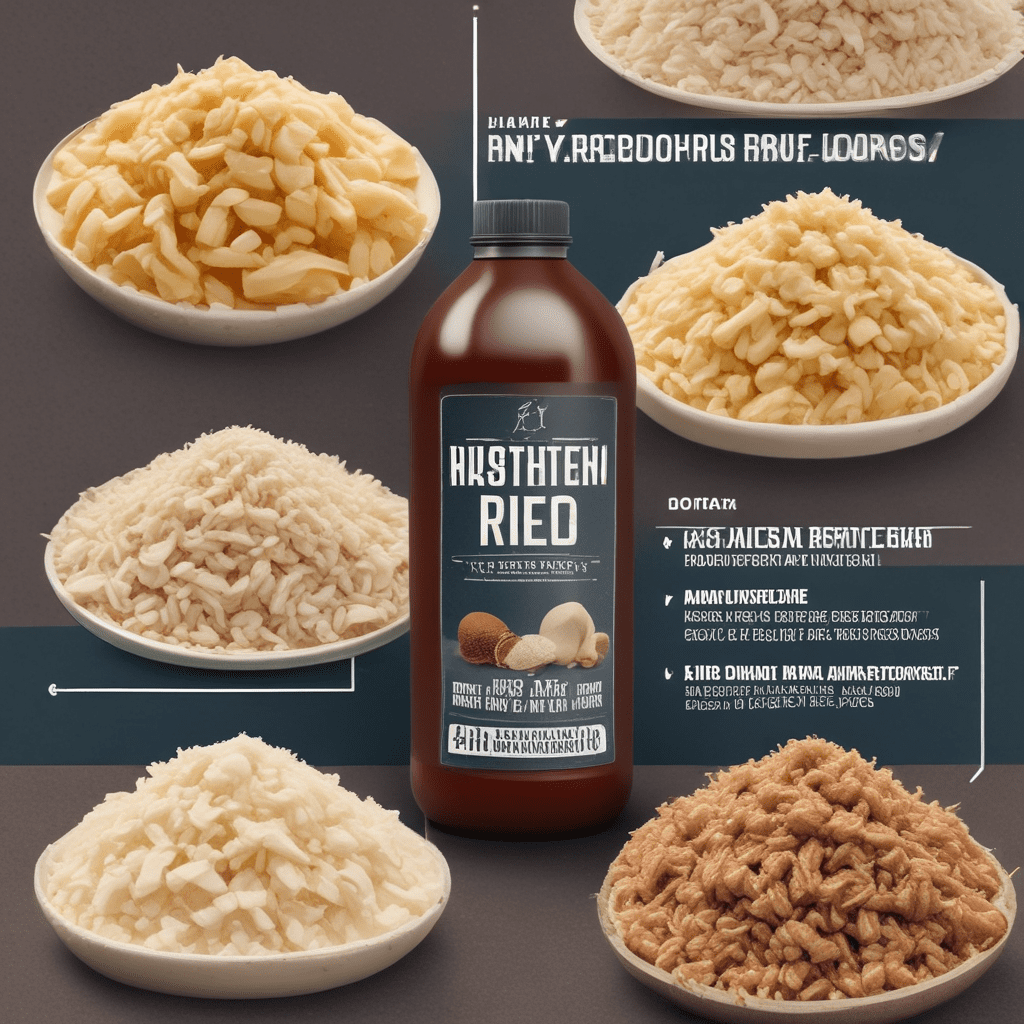
Muscle Building and Rice Protein: Hypoallergenic Protein Source
When it comes to muscle building and finding a protein source that suits your needs, rice protein emerges as a game-changer. This plant-based protein not only aids muscle growth but also offers hypoallergenic benefits for individuals with sensitivities to other protein sources.
The Wonders of Rice Protein for Muscle Building
Rice protein is a complete protein, containing all nine essential amino acids necessary for muscle growth and repair. It is particularly rich in the amino acid leucine, which plays a crucial role in stimulating muscle protein synthesis. This makes rice protein an excellent choice for individuals looking to enhance their muscle-building efforts.
Hypoallergenic Nature of Rice Protein
One of the standout features of rice protein is its hypoallergenic properties. Unlike protein sources like whey or soy, rice protein is gentle on the digestive system and less likely to trigger allergic reactions. This makes it an ideal option for those with sensitivities or allergies to common protein sources.
Optimizing Muscle Recovery with Rice Protein
After intense workouts, your muscles need the right nutrients to recover and grow stronger. Rice protein offers a convenient way to replenish protein stores without the risk of digestive discomfort or allergic reactions. Its easy digestibility and bioavailability make it a smart choice for muscle recovery.
Incorporating Rice Protein into Your Fitness Routine
Adding rice protein to your post-workout shakes or smoothies is a simple way to increase your protein intake and support muscle growth. You can also use rice protein in cooking and baking to boost the protein content of your meals while enjoying its hypoallergenic benefits.
The Versatility of Rice Protein Supplements
Rice protein supplements come in various forms, including powders, bars, and ready-to-drink shakes. This versatility allows you to choose the option that best fits your preferences and lifestyle. Whether you are a fitness enthusiast, athlete, or simply looking to increase your protein intake, rice protein can be a valuable addition to your diet.
Conclusion
Rice protein offers a winning combination of muscle-building benefits and hypoallergenic properties, making it a standout protein source for individuals with diverse needs. By incorporating rice protein into your fitness routine, you can support muscle growth, aid in recovery, and enjoy the peace of mind that comes with a gentle and well-tolerated protein source.
FAQs about Muscle Building and Rice Protein
What is rice protein?
Rice protein is a plant-based protein derived from brown rice. It is a hypoallergenic protein source suitable for individuals with allergies or sensitivities to other protein sources like soy or whey.
How does rice protein help with muscle building?
Rice protein contains essential amino acids necessary for muscle growth and repair. When combined with regular strength training, rice protein can support muscle building and recovery effectively.
Is rice protein a complete protein source?
Rice protein is not considered a complete protein on its own as it may lack sufficient amounts of certain essential amino acids. However, pairing it with other plant-based protein sources like pea protein can create a complete amino acid profile.
Can rice protein benefit athletes and fitness enthusiasts?
Yes, rice protein can benefit athletes and fitness enthusiasts by providing a convenient and easily digestible protein source to support muscle recovery, growth, and overall performance.
Are there any side effects of consuming rice protein?
Most individuals can tolerate rice protein well, but some people may experience gastrointestinal discomfort like bloating or gas. It is essential to start with small amounts and monitor your body’s response.
How can rice protein be incorporated into a muscle-building diet?
Rice protein can be added to smoothies, oatmeal,


